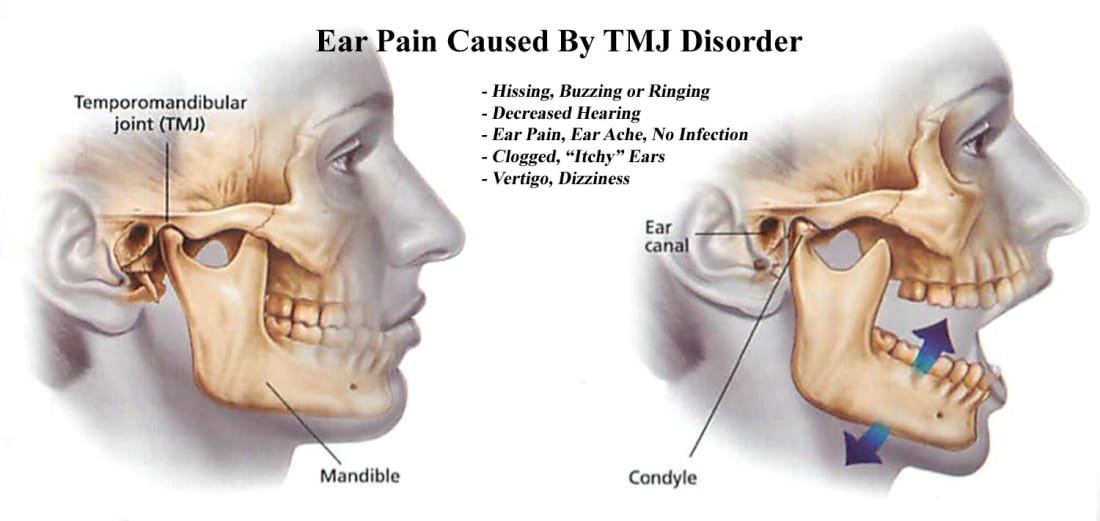Temporomandibular disorder is a medical condition that can greatly affect the jaw’s movement. The good news is that this condition is very rarely serious, and it can get better.
Occasionally the disorder gets better on its own other times, medical intervention might be required. Let’s take a look at the symptoms and causes of this disorder.
Symptoms of Temporomandibular Disorder
The symptoms of this disorder can include:
- Pain around the jaw, temple, and ear
- A headache around your temples
- Your jaw locking when your mouth is open
- Grinding, popping, or clicking when moving your jaw
- Trouble opening your mouth
When you’re stressed or chewing food, you may find that the pain is worse.
Occasionally, the pain can be so bad that sufferers are unable to sleep at night. If you experience a lot of pain, so much that it keeps you awake at night, please speak to your doctor.
Treatment
Please speak to your doctor if you think you have Temporomandibular disorder. They might suggest that you do some relaxation exercises to help lower your stress levels. In addition to this, your your doctor might ask you to see your local dentist if you grind your teeth. They can help you by offering you a solution to the grinding, while also helping you to look after your teeth. Your doctor or dentist might also offer you painkillers if you are struggling with your pain. If you see no improvement in your symptoms, you might be referred to a specialist.
Temporomandibular disorder can be quite uncomfortable. However, it can get better of its own accord. If you are experiencing a lot of pain, please make sure you speak to your doctor. They might be able to help you relieve the pain and deal with its causes, helping you to feel much more comfortable.
Causes of Temporomandibular Disorder
There are thought to be multiple causes of Temporomandibular disorder. These include:
- Grinding your teeth, especially at night
- Stress caused by your job, life at home, or anything else
- Having an uneven bite, this can put extra pressure on your jaw
- Receiving a blow to the face or head, an injury can put more pressure on your jaw
- Wear and tear of the jaw and its joints, this could be caused by a range of conditions
Some people find that it the more stressed they are, the more they grind their teeth. You can help to protect your teeth at night so when you grind them you’re less likely to damage them. However, this might not help to prevent pain in your jaw.
If you are stressed, you might try to relieve that stress somehow. Think about how you like to relieve stress. When you’re feeling stressed you might bite down on your teeth more or clench your jaw. These actions can help to make your pain worse. If you have an issue with stress, please speak to your doctor.











